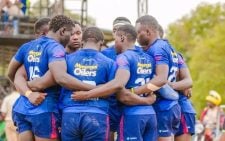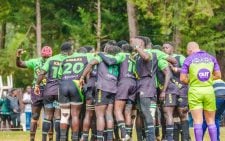Progress seen on gender equity but dark spots persist

Kenya has made strides in gender equity, but progress is slow and uneven. Women now hold key positions in leadership, business, and policymaking, yet gender-based violence, femicide, and economic exclusion remain serious challenges. Legal frameworks exist, but implementation is weak, and cultural barriers still hinder gender parity. Even then, we must celebrate this International Women’s Day, as we have seen some improvements, including greater political representation.
The two-thirds gender rule has been a major advocacy point, leading to more women in leadership at the county and national levels. The election of Martha Karua as a presidential running mate in 2022 marked a historic moment for women’s political visibility. And thus a green light for many women who would like to test these waters. Even the governance categories saw more women come out into view for the positions. More female governors, MPs, and senators have taken up leadership roles. This is the most significant progress for women in leadership to date.
Time has also seen the growth of women-led businesses and cooperatives, particularly in sectors like agribusiness, the blue economy, and trade. They have been able to showcase their prowess in these areas of business and show their counterparts that they are fully capable of holding leadership positions in these sectors as well. Women are increasingly breaking into STEM, digital economy, and entrepreneurship.
When it comes to advocacy, we are witnessing more conversations on gender rights, gender-based violence, and women’s empowerment at the grassroots and national levels. Digital activism and movements like #EndFemicide, #UsawaAgenda, and Mulika Campaign have pushed gender issues to the forefront. In 2024-2025, this form of activism has brought a new light to the real situations on the ground and the campaigns are creating room for more of the conversations, with even more men joining in to stand with and advocate for women’s rights. X Spaces has proven to be one of the most powerful advocacy tools in Kenya.
Despite these positive strides, it is not enough. There is still more that needs to be done, including stronger enforcement of laws protecting women and girls. We also need to accelerate economic inclusion through better access to finance, jobs, and markets. We are in the middle of the digital era, and we cannot afford to leave more women and girls behind in this forward movement. Therefore, it is time to push for more investments in education and digital literacy for women and girls to compete in the evolving job market.
While the numbers are still down, it has proven to be a useful tool when men are involved in women rights advocacy. For example, the Kataa Wembe project advocates the end of female genital mutilation in Maasai lands. Through music and other activities on the ground like distribution of sanitary packages, the young male founders have been able to convince many members of their community to make room for conversations on FGM, and to join hands in eradicating it. Engaging more men as allies in the gender equality movement is definitely a useful tool.
Kenya has come far, but real gender parity requires faster, bolder action, from policies to grassroots change. Now is the time to accelerate progress. When it comes to women in leadership in Mombasa, that county has female County Executive Committee members, nominated women senators, and nominated county assembly members who advocate for gender equality and women’s inclusion. There is positive progress in advocacy for policies against sexual and gender-based violence as organizations have pushed for such policies. Its implementation is crucial for protecting survivors.
Mwakirunge GBV Rescue Centre has been set up but is yet to start operations. Once functional, it will provide essential support for survivors of gender-based violence. Women in Mombasa have mobilised through protests and advocacy to demand justice and protection against gender-based violence by joining in the End Femicide KE protests, and lastly, women’s increasing role in the blue economy and small businesses is driving financial independence.
Despite these achievements, Mombasa needs more women in political positions to strengthen advocacy and decision-making. Gender equity requires faster policy implementation, stronger gender-based violence response structures, and increased women’s representation in leadership.
— The writer is a Journalist with People Daily and a Human Rights Defender












